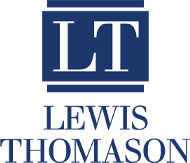Claims for Medicare Fraud
Medicare is the federal health insurance program for: (a) people who are 65 or older; (b) certain younger people with disabilities; and (c) people with End-Stage Renal Disease. Not surprisingly, several federal laws exist to prevent and punish Medicare related fraud:
- The False Claims Act (FCA);
- Anti-Kickback Statute (AKS);
- Physician Self-Referral Law (Stark Law);
- Social Security Act (SSA); AND
- The United States Criminal Code.
Examples of Medicare related fraud can include, but are not limited to:
- Knowingly billing for services at a level of complexity higher than services actually provided or documented in the medical records;
- Knowingly billing for services not furnished, supplies not provided, or both, including falsifying records to show delivery of such items;
- Knowingly ordering medically unnecessary items or services for patients;
- Paying for referrals of federal health care program beneficiaries; OR
- Billing Medicare for appointments patients fail to keep.
Persons and/or entities who violate the FCA can be held liable for 3X the total dollar amount of the fraud they committed, as well as civil penalties anywhere between $5,000 to $10,000 for each false claim. And a whistleblower who brings Medicare related fraud to the government’s attention can receive anywhere between 15-30% of the government’s total settlement/judgment.
- Fictional Example: A whistleblower nurse files a qui tam claim after discovering her employer was knowingly and routinely ordering medically unnecessary services for patients. The U.S. Justice Department then chooses to prosecute the claim, later settling with the nurse’s employer for $2,000,000.00. Based on a variety of factors, the whistleblower nurse could receive anywhere from $300,000.00 to $600,000.00 of the total settlement.
If you have knowledge of Medicare related fraud, please feel free to contact me by e-mail ([email protected]) or by phone (865-546-4646) to discuss the same.

This blog is being made available by a lawyer for educational purposes only. This blog is not being published to provide any type of specific legal advice. By using and reading this blog, you must understand that there is no attorney client relationship of any kind is being created between you and the lawyer or his firm. This blog should not be used as a substitute for specifically tailored legal advice from a licensed attorney in your state of residence, or in the state your case/claim may arise.




